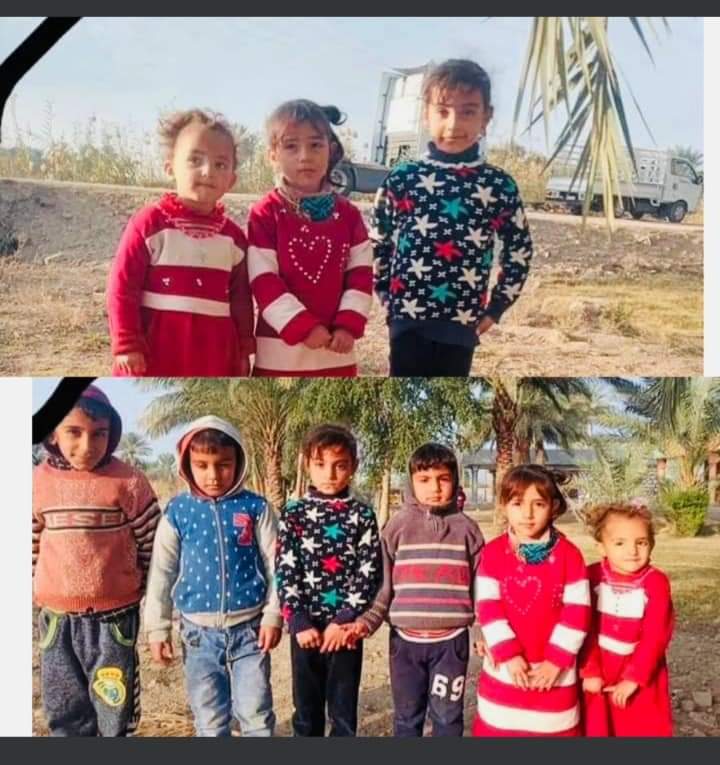Iraq, once a land hailed for its rich history and cultural heritage, has now become a symbol of endless suffering and instability. What was once promised as a country of security, prosperity, and democratic values has devolved into a place where bloodshed and violence are an unfortunate part of daily life. While officials speak of progress and stability, the reality on the ground is far different. The cries of innocent children, the anguished wails of grieving mothers, and the relentless roar of violence echo through the streets of a country that has been torn apart for decades.
As 2021 came to a close, Iraq witnessed yet another devastating chapter in its long history of conflict. The year ended with the massacre in Al-Miqdadiya, followed by the brutal slaughter in Jubaila just days into 2022. These tragic events, fueled by sectarian militias and their political sponsors, are a grim reminder of the ongoing cycle of violence that continues to plague the country.
The political scene in Iraq is dominated by figures such as Al-Sistani, Al-Maliki, Hadi al-Amiri, Qais al-Khazali, and Muqtada al-Sadr, whose influence has enabled Iran-backed militias to assert control over various regions. Their grip on power is maintained through fear and violence, with the blood of innocent Iraqis spilled in the name of sectarianism and political maneuvering. These groups, whose hands are stained with the blood of both Iraqis and the ideals of freedom, have systematically silenced dissent and crushed any hope for change.
The situation reached a boiling point when Hadi al-Amiri, a key figure in Iraq’s sectarian machinery, visited Al-Miqdadiya in late 2021. There, he declared, “Diyala is the key to Iraq’s stability; if Diyala stabilizes, Iraq stabilizes.” His words were not just a call for peace but a prelude to further violence. Al-Amiri and his allies, who have long pursued an agenda of Iranian-backed sectarianism, saw in Diyala a region where the influence of the Shiite militias could be solidified.
What followed was a series of violent actions aimed at suppressing any voice of dissent. From 2015 onwards, Shiite militias and Iraqi military forces carried out brutal operations in areas like Al-Miqdadiya and Barwana, executing scores of Sunni civilians under the pretense of fighting terrorism. These massacres continued throughout 2021 and 2022, as militias attacked Sunni villages, killing men, women, and children, burning homes, and forcibly displacing entire families.
In some instances, the Iraqi security forces, including the controversial Special Weapons and Tactics (SWAT) units, launched attacks against Sunni areas, claiming that they were targeting ISIS militants. However, many of the victims were innocent civilians, as evidenced in the case of a raid on a Sunni home in the village of Al-Jubaila, where 20 family members were killed. These operations were often justified under the guise of fighting terrorism, but the real objective seemed to be to maintain the dominance of sectarian militias and suppress any potential for unity in a fractured nation.
The continued presence and influence of the Popular Mobilization Forces (PMF), which have grown increasingly entrenched in Iraq’s political and security spheres, further exacerbate the crisis. These groups control critical infrastructure, including border crossings, and hold significant sway over Iraq’s economy and political decisions. Their influence is not just military but deeply embedded in the very fabric of Iraq’s governance, making it difficult for any reform or change to take place.
In response to these events, the Iraqi government, led by Prime Minister Mustafa al-Kadhimi, has struggled to maintain control. Despite efforts to contain the violence and hold perpetrators accountable, the political landscape remains deeply divided, with factions loyal to Iran and their militias holding considerable power. The security forces often appear to be complicit in the violence, as their actions are inconsistent and contradictory, further undermining public trust.
Iraq now finds itself in a perpetual state of fear and instability. The cycle of violence, perpetrated by militias with political backing, has become a defining feature of the nation’s reality. Each day seems to bring new reports of killings, abductions, and massacres, further entrenching Iraq’s reputation as a failed state. The country is held hostage by the very forces that claim to protect it, leaving its citizens to suffer under the weight of sectarianism, political corruption, and unrelenting violence.
As the situation grows more dire, Iraqis continue to pay the price for a political system that prioritizes power over people and sectarian loyalty over national unity. The dream of a peaceful, prosperous Iraq seems increasingly distant, and the future remains uncertain for a nation that once promised so much. Until true accountability, reform, and unity are achieved, the cycle of violence will continue to claim more innocent lives, and Iraq will remain trapped in the grip of its darkest days.
